
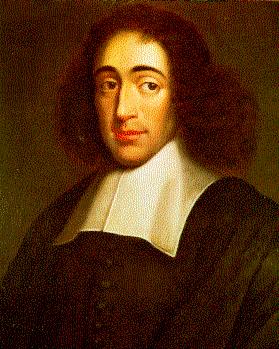


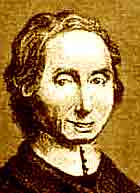


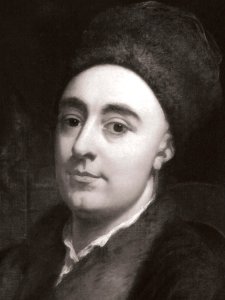
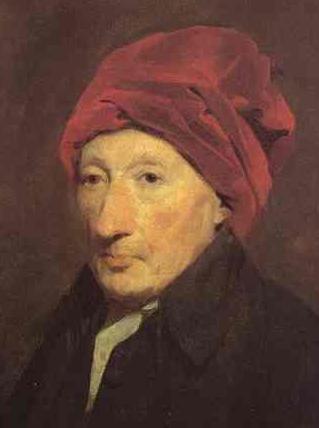

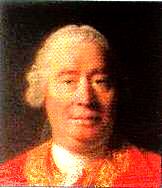
The
Early Modern Philosophy Calendar
For years I maintained this website at Texas A&M University in College Station, TX as a service to scholars working in the history of early modern philosophy. After nearly fifty years teaching philosophy--forty of which were at Texas A&M--I have now retired, and I have passed the responsibilities for this Calendar to Steve Nadler and Emmaline Secada at the University of Wisconsin. The website is located at https://earlymodern.wixsite.com/semp. Along with lots of other information, it brings together information about calls for papers, event schedules, conferences, seminars, and scholars who work in 16th, 17th, and 18th century philosophy. I appreciate all the support and help I have received on this Calendar over the years, and I will continue to check in on announcements and participate in the profession as I move into this new (more relaxed) phase of my life.
Events posted on various mailing lists and websites (e.g., philosop, philos, MWSeminar, Facebook Early Modern Philosophy Resources, Montreal EM Roundtable, philevents, the Kantian Calendar) were incorporated into this page.
Submission Deadlines:
September 20, 2023
NY/NJ Research Seminar in Early Modern Philosophy
Shelley Weinberg (Illinois, Urbana-Champagne): TBA
7:30 to 9:30 pm
John Jay College of Criminal Justice, 524 West 59th Street, New Building, Room 8.63.24
New York, NY
Contact: Enrique Chávez-Arvizo.
September 21-23, 2023
Digital Kant-Centre NRW: Kant on the Human Right for Education
Siegen, Germany
This combined workshop and conference will explore whether and how Kant’s philosophy can be used to defend a human right for education. First,
it will be asked whether central elements of Kant’s philosophy (e.g., his conception of duty or the innate right to freedom) are suitable
to found a conception of human rights. Second, Kant’s notion of education will be investigated. And, third, it will be asked whether and how
a Kantian theory of a human right for education can be developed. In the workshop (Kant-Kurs), we will discuss passages from Kant’s works which
are relevant to the topics of human rights and education. We will make use of the method of commentary interpretation as pursued by the
researchers at ZetKIK (Zentrum für Kommentarische Interpretationen zu Kant). The workshop will be followed by a conference (Kant-Tagung), which
will follow the threefold structure outlined above. Here, experts will present and discuss their (Kantian) theses on human rights, education
and the human right for education. Guest instructor for the workshop: Allessandro Pinzani
The workshop will begin at 9:00 am on September 21, and end at 1:00 pm on September 22. The conference will start
directly after the workshop and end at 5:00 pm on September 23. All workshop participants are also invited to attend the conference.
Stipend: Advanced students before and during the doctoral phase as well as younger postdocs are invited to submit an
application. Very good knowledge of German (at least passive) is a prerequisite. (The main language of both the workshop and the conference will
be German.) Applications from abroad are highly encouraged. All participants will either receive a partial or full stipend (hotel and travel
expenses), depending on the field of applicants. The workshop is designed to practice the method of commentary interpretation. Therefore, there
will be no lectures or talks during the workshop. The focus will rather be on the common goal of discussing and interpreting selected passages
from the Kantian text in a group of excellent junior scholars.
All applicants must submit a CV and a short letter of motivation (deadline: July 1, 2023). Please send your application
to Nils Ruesche.
Organizer: Larissa Berger
September 22-23, 2023
Newton & Newton’s Philosophiae Naturalis Principia Mathematica Geneva Edition ([1739-1742] 1822)
Centenary Room, Oxford University
Friday 22 Sept
13h30-13h55 Welcome Ceremony
Plenary Session, Raffaele Pisano (Uf Lille-CNRS)
14h00-14h45 Rob Iliffe (Oxford): "Where the Statues Stood: Newtonian Legacies in Post-Napoleonic Europe"
15h00-15h45 Raffaele Pisano (CNRS Lille) & Paolo Bussotti (U Udine, Italy): "Introduction to Newton’s
Philosophiae Naturalis Principia Mathematica as a Crucial Relationship between Physics and Mathematics"
16h00-16h45 Paolo Bussotti (U Udine Italy) & Raffaele Pisano (CNRS Lille): "Conceptual Frameworks from
Newton's Principia: Case Studies and Analysis of the Problem of Isochronism, Proposition LIII
17h15-17h45&nbap; Raffaele Pisano (U Lille-CNRS): Open Roundtable Debate
Saturday 23 Sept
Newton & Newtonianism in its Intellectual Historical Context, chair Philip Beeley (Oxford)
10h00-10h45 David Wootton (York): Voltaire and Newton’s God
11h00-11h45 Flavia Marcacci (Pont Lat Vatican): Cosmology and Astronomy in Newton's third Volume of the
Principia Prop XIII-XIV
13h00-13h45 Philip Beeley (Oxford): Helvetian Readings of Newton: Networks of Cramer and Calandrini
Newtonianism in its Historical Scientific Context, chair Jo Ashbourn (Oxford)
14h00-14h45 Sarah Hutton (York): Debating Newtonianism in France, England and Italy: Emilie du Châtelet's
Critique of James Jurin
Raffaele Pisano (Lille-CNRS
15h00-15h45 Open Roundtable Debate Part II: Speakers & Participants
16h00-16h45 Scott Mandelbrote (Cambridge & Ed Dir Newton Project): Editing Newton’s Principia from
Cambridge to Glasgow, via Geneva and Rome
17h15-17h30 Official Closing
Website
September 27, 2023
Kant Zentrum NRW
Alessandro Pinzani: tba
Zoom link
18:00 – 20:00 CET
Kant Zentrum Series Site.
Contact: Larissa Berger.
September 29-October 1, 2023
Leibniz Society of North America
Harvard University
Cambridge, MA
Papers on any aspect of Leibniz’s philosophy will be considered and should have a reading time of approximately 45 minutes.
Submissions should take the form of abstracts of about 500 words in length, prepared for anonymous review. They should be submitted
as attachments to emails in PDF format to Jeff McDonough. The deadline for the receipt of
submissions is May 15, 2023. Authors will be notified by June 15 of the program committee’s decision. Selected authors will
be expected to send complete drafts of their presentations to their commentators by August 15, 2023.
October 4, 2023
NY/NJ Research Seminar in Early Modern Philosophy
Desmond Hogan (Princeton U): TBA
7:30 to 9:30 pm
John Jay College of Criminal Justice, 524 West 59th Street, New Building, Room 8.63.24
New York, NY
Contact: Enrique Chávez-Arvizo.
October 18, 2023
NY/NJ Research Seminar in Early Modern Philosophy
Andrew Chignell (Princeton U): TBA
7:30 to 9:30 pm
John Jay College of Criminal Justice, 524 West 59th Street, New Building, Room 8.63.24
New York, NY
Contact: Enrique Chávez-Arvizo.
October 25, 2023
Kant Zentrum NRW
Rachel Zuckert: "Kant’s Philosophy of History as Response to Existential Despair"
Zoom link
18:00 – 20:00 CET
Kant Zentrum Series Site.
Contact: Larissa Berger.
November 10-11, 2023
NYU Conference on Issues in Modern Philosophy: Love and Friendship
New York University, New York
Friday, November 10
9:30–9:55 Check–in and Coffee
9:55 Welcome
10:00–12:00 Ryan Patrick Hanley (Boston C): "Adam Smith"; commentator Samuel Fleischacker (Illinois Chicago)
2:00–4:00 Marcia Baron (Indiana U Bloomington): "Immanuel Kant"; commentator Kyla Ebels–Duggan (Northwestern)
4:30–6:30 Frederick Beiser (Syracuse): "German Romanticism"; commentator Owen Ware (Toronto)
Saturday, November 11
9:30–10:00 Check–in and Coffee
10:00–12:00 Andrew Huddleston (Warwick): "Friedrich Nietzsche"; commentator Claire Kirwin (Northwestern)
2:00–4:00 Michelle Kosch (Cornell): 'Simone De Beauvoir"; commentator Susan J. Brison (Dartmouth)
4:30–6:30 Simon May (King's C London): Contemporary, commentator Alexander Nehamas (Princeton)
Website
Contacts: John Richardson, Don Garrett, and Anja Jauernig.
November 15, 2023
NY/NJ Research Seminar in Early Modern Philosophy
Tito Magri (La Sapienza, Rome): TBA
7:30 to 9:30 pm
John Jay College of Criminal Justice, 524 West 59th Street, New Building, Room 8.63.24
New York, NY
Contact: Enrique Chávez-Arvizo.
November 28-30, 2023
Australasian Seminar in Early Modern Philosophy
University of Otago
Dunedin, New Zealand
Invited speakers: Karolina Hübner (Cornell), Peter Thielke (Pomona)
We hope to include both individual presentations and panels of 2-4 speakers on figures and themes in seventeenth and eighteenth century
philosophy. For individual papers, please send two versions of an abstract of about 500 words no later than March 1, 2023. For panels,
please send two versions of an abstract of about 1000 words. One version of the abstract should include authors' names and affiliations.
The second should be prepared for blind review. Send abstracts by e-mail attachment as a pdf file to
Michael LeBuffe. All abstracts will be acknowledged. Successful participants will be notified by April 15, 2023.
November 29, 2023
Kant Zentrum NRW
Andrea Esser: tba
Zoom link
18:00 – 20:00 CET
Kant Zentrum Series Site.
Contact: Larissa Berger.
January 15-18, 2024
APA Eastern Division Meeting
Sheraton New York Times Square, 811 7th Avenue
New York, New York
Submission deadline: February 15, 2023.
February 21-24, 2024
APA Central Division Meeting
Astor Crown Plaza New Orleans French Quarter, 739 Canal Street
New Orleans, Louisiana
Submission deadline: June 1, 2023.
International Berkeley Society Session
Author Meets Critics: Stephen H. Daniel, George Berkeley and Early Modern Philosophy
March 20-23, 2024
APA Pacific Division Meeting
Hilton Portland, 921 SW 6th Avenue
Portland, Oregon
Submission deadline: September 1, 2023.
March 27-28, 2024
Spinoza and English Empiricism
Milan, Italy
Conference topics include: the critique of substance, the causal nexus and determinism, the mind/body nexus, the idea of
power/power, the critique of free will, the relationship between different types of knowledge, the question of identity, the
theory of the passions, that of the virtues, the nexus between moral judgment and the passions, the conception of justice,
and therefore political power, of its articulations and limits, the critique of religion in its theological as well as political
implications. Equally varied, needless to say, is the possible methodological approach: the punctual comparison of texts, the
question of possible mediators, the prism of receptions, the critique of established historiographical canons, the actualization.
Contact: Francesco Toto
April 8-10, 2024
British Society for the History of Philosophy Annual Conference
University of Liverpool
Proposals for individual papers and proposals for themed symposia are invited on any aspect of the history of philosophy. In line
with the BSHP’s commitment to broadening the canon, proposals on currently under-represented philosophical traditions, periods and
thinkers are especially welcome. All proposals must be anonymized for blind peer-review.
Individual papers: Please send an abstract of 500 words maximum for a paper suitable for a 20-minute presentation to
BSHP2024@liverpool.ac.uk". Please also submit, in a separate document, your name, email
address and institution. Symposia: Please send a proposal of 500 words maximum for a symposium of 3–4 papers (of 20 minutes each) with
abstracts of 300 words maximum for each paper to the above address. Please also submit, in a separate document, the email address and
institution of each participant, and the name and email of the symposium organizer who will serve as contact person.
Deadline: 30 September 2023.
All conference participants, including accepted speakers, must be BSHP members. However, you need not be a member in order to submit an
abstract. For information on the BSHP and how to join please visit the BSHP
website. Graduate students and unwaged members who are accepted speakers may apply for a bursary of up to £200. Please email the above
website for details.
April 24, 2024
Kant Zentrum NRW
Andrea Esser: tba
Zoom link
18:00 – 20:00 CET
Kant Zentrum Series Site.
Contact: Larissa Berger.
July 15-19, 2024
VI Congreso Internacional de la SEKLE (Society of Kantian Studies in the Spanish Language): 300th Anniversary of Immanuel Kant's Birth
Universidad Santiago de Compostela
Santiago de Compostela, Spain
Kantian Ways of Thinking
The motto "Ways of Thinking" metaphorically evokes the Camino de Santiago and the beautiful hosting city, as well as the
many pathways and ways opened by Kantian thought three centuries after his birth. From our perspective, we consider the developmental history of
his thought not only as following a single path but many, something which is also true regarding the history of his reception. Etymologically, the
words 'way' (camino/Weg) and 'ways' (caminos/Wege) suggest the problem of method or methods of Kant’s thinking and there is in our thinker “a path
that is thus far entirely unexplored” (KrV A98), namely, that of the Transcendental Deduction of the categories. But there are a variety of ways –
both national and international – that can bring Kant researchers to Santiago de Compostela on the occasion of the tricentenary of his birth. As
well as the aforementioned themes, contributions on any other aspect of Kant’s thought are welcome. The languages of the congress are Spanish,
German, Portuguese, English, Italian, French and Galician. The modality will be hybrid.
Proposals (title and abstract: no more than 1000 words) must be sent to
kksekle24usc@gmail.com" before the May 30, 2023. Communication of acceptance will be sent before the 15th of October 2023.
Attendance Fees: In the three sections, associates of SEKLE will receive a 50% discount. Free entry will be considered in the case of those
from countries in military conflict or in serious economic crisis. In all cases, the registration fee will entitle the attendee to a
participation certificate and congress materials.
· University professors presenting: enrollment before December 31, 2023: 120 euros; January 1-March 31, 2024: 140 euros;
April 1-July 15, 2024: 160 euros.
· Independent Researchers Presenting: enrollment before December 31, 2023: 50 euros; January 1-March 31, 2024: 70 euros;
April 1-July 15, 2024: 90 euros.
· Participants not Presenting: enrollment before December 31, 2023: 20 euros; January 1-March 31, 2024: 30 euros;
April 1-July 15, 2024: 40 euros.
Organizing committee: María Jesús Vázquez Lobeiras (Santiago de Compostela), Alba Jiménez Rodríguez (Complutense de Madrid),Paula Órdenes Azúa
(Heidelberg), Fernando Moledo (Hagen), Pedro Jesús Teruel Ruíz (Valencia), Manuel Sánchez Rodríguez (Granada).
September 8-13, 2024
International Kant Congress
University of Bonn
Website.
November 1, 2022: deadline for full paper submissions.
Contact: Dietmar Heidemann.
January 8-11, 2025
APA Eastern Division Meeting
Sheraton New York Times Square, 811 7th Avenue
New York, New York
Submission deadline: February 15, 2024.
April 15-20, 2025
APA Pacific Division Meeting
Westin St. Francis, 335 Powell Street
San Francisco, California
Submission deadline: September 1, 2024.